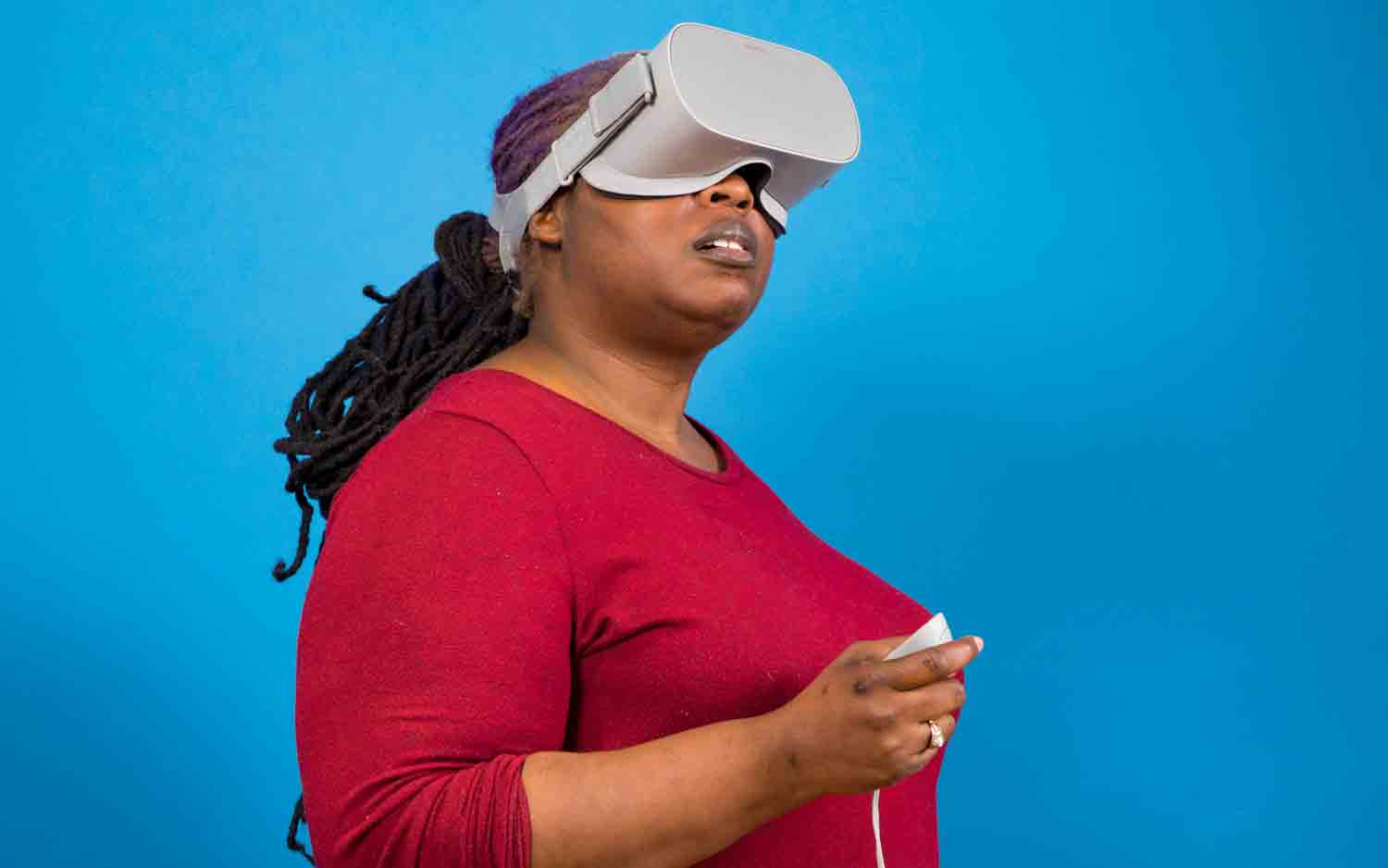Oculus Go Review Roundup: Wireless VR Done (Mostly) Right
Facebook's first standalone VR headset, the $199 Oculus Go, is here, but is it the mainstream device we hoped for?
Facebook's first standalone VR headset, the $199 Oculus Go, is here.
It has no wires, doesn't need a PC or a smartphone and already features thousands of apps and games to use. But while that price moves it closer towards impulse buy territory, many are still wary about VR's big moment. So is the Oculus Go its big breakout for the mainstream? Here's what reviewers think.

Tom's Guide
Why you can trust Tom's Guide
Sherri L. Smith was thrilled to see a VR headset without any wires that didn't need to destroy a smartphone battery. She gave the Oculus Go an 8/10 and our Editor's Choice award. It's comfortable (and comes with a spacer for glasses) and already has large library of content to keep your going for hours. But some of the setup did require the phone, and the Go strips the room-tracking capability you get from more expensive headsets.
Pros:
"Oculus Go shares a library with the Gear VR, which is why Go can claim a catalog of more than 1,000 games and apps."
"I wore the headset for 2 hours while wearing glasses without any discomfort."
Cons:
"It's a bit on the heavy side for a mobile headset, but my bigger gripe is that the Go still relies on your smartphone."
The Verge
The Verge's Adi Robertson is slightly more lukewarm on the Go. She praised its low price and the fact that it stands on its own, but found that it doesn't get all of the best VR experiences that are limited to desktops and that the design is bulky.
Pros:
"It’s a reasonably priced device that doesn’t require having a specific phone, doesn’t force you to clumsily lock that phone into another piece of hardware, and doesn’t drain the battery that you might need for more important tasks."
"The Oculus Go improves on the Gear VR in one big way: you don’t need a high-end Samsung phone to use it, so the headset is convenient for people with iPhones or other Android phones."
Cons:
"Oculus isn’t trying to solve VR’s biggest hardware problems with the Oculus Go. That includes low resolution and limited field of view, but also the basic weight of the headset."
Ars Technica
Sam Machkovech of Ars Technica wrote that the Oculus Go is comfortable and that its 3D sound modeling is cool, but had privacy concerns about its GPS requirement and found that the available games aren't much fun to play.
Pros:
"Even if you've never used a VR headset, this headstrap makes instant-fitting sense: pull it over the back of your head, and its full shape and support structure fleshes out."
"This pair of speakers bounces low-volume sound off your skull, and the effect is impressive because of how quickly its novelty melts away."
Cons:
"You can't boot Oculus Go without letting the Oculus app access your smartphone's GPS signal."
"Most of Go's games and 360-degree apps feel like glorified tech demos, and they quickly run out of steam."
Wired
Wired's Peter Rubin praised the Go for its great display and easy-to-use interface, but found that the headset's three degrees of freedom feel like a half measure.
Pros:
"The first thing you notice when you turn on the Go and select a home environment—a 360-degree photo that serves as backdrop for the rest of the user menus—is 'wow that display looks good.'"
Cons:
"You can spin and nod and tilt to your heart's content, but being confined to so-called 'three degrees of freedom' means that you can't lean over to inspect something more closely, or duck out of the way of an incoming virtual object."
"But while you'll find lots to do and see, the Go offers precious little of the deep social experiences have captivated PC VR users."
Sign up to get the BEST of Tom's Guide direct to your inbox.
Get instant access to breaking news, the hottest reviews, great deals and helpful tips.
Andrew E. Freedman is an editor at Tom's Hardware focusing on laptops, desktops and gaming as well as keeping up with the latest news. He holds a M.S. in Journalism (Digital Media) from Columbia University. A lover of all things gaming and tech, his previous work has shown up in Kotaku, PCMag, Complex, Tom's Guide and Laptop Mag among others.

